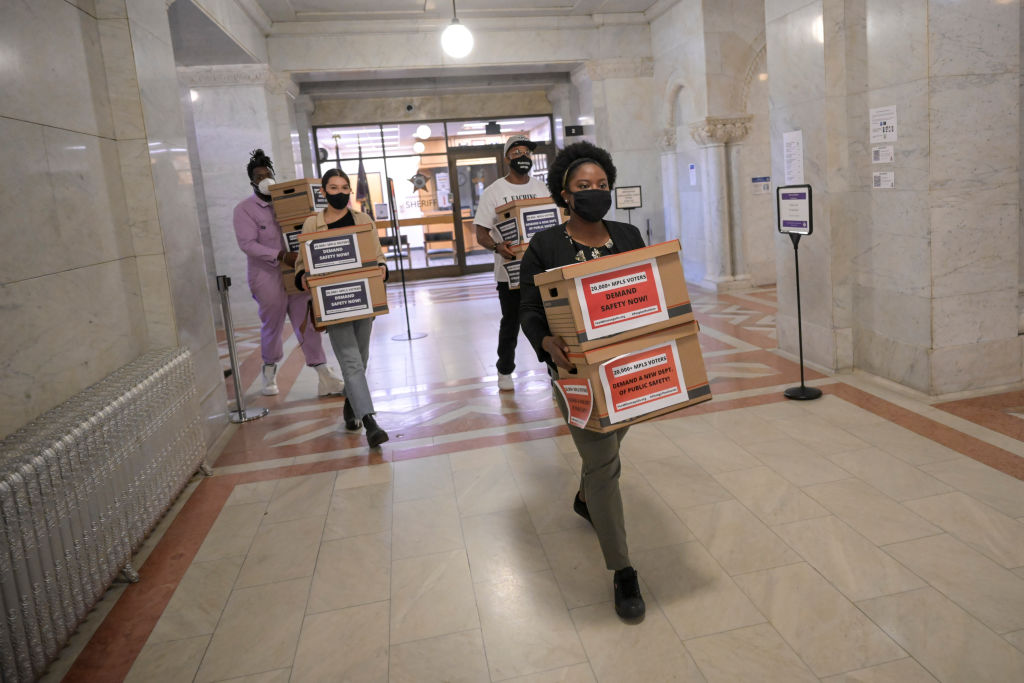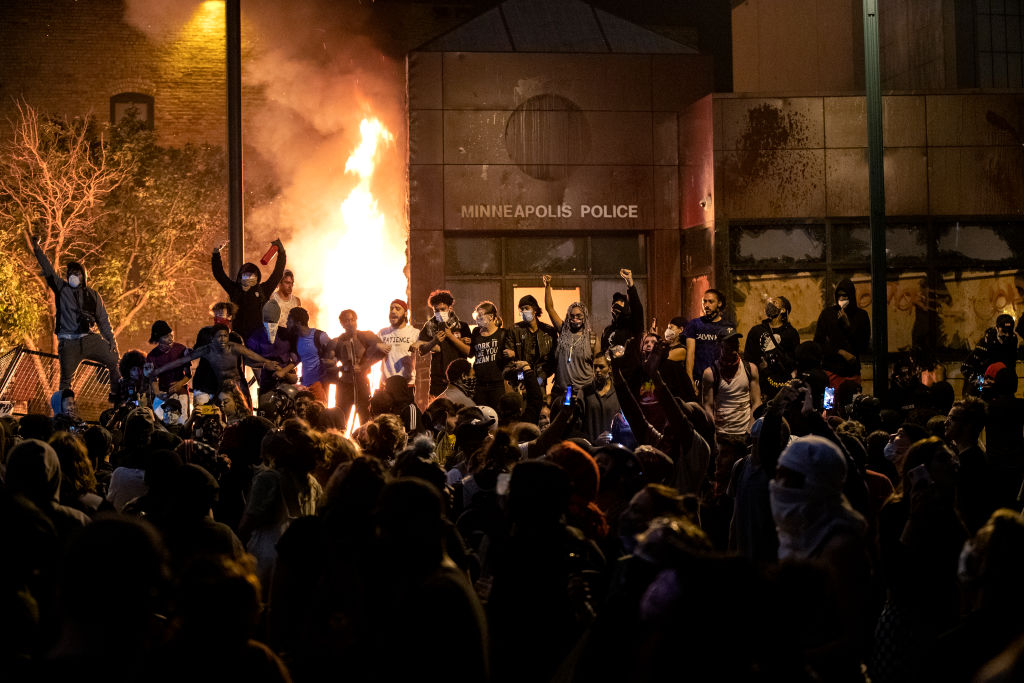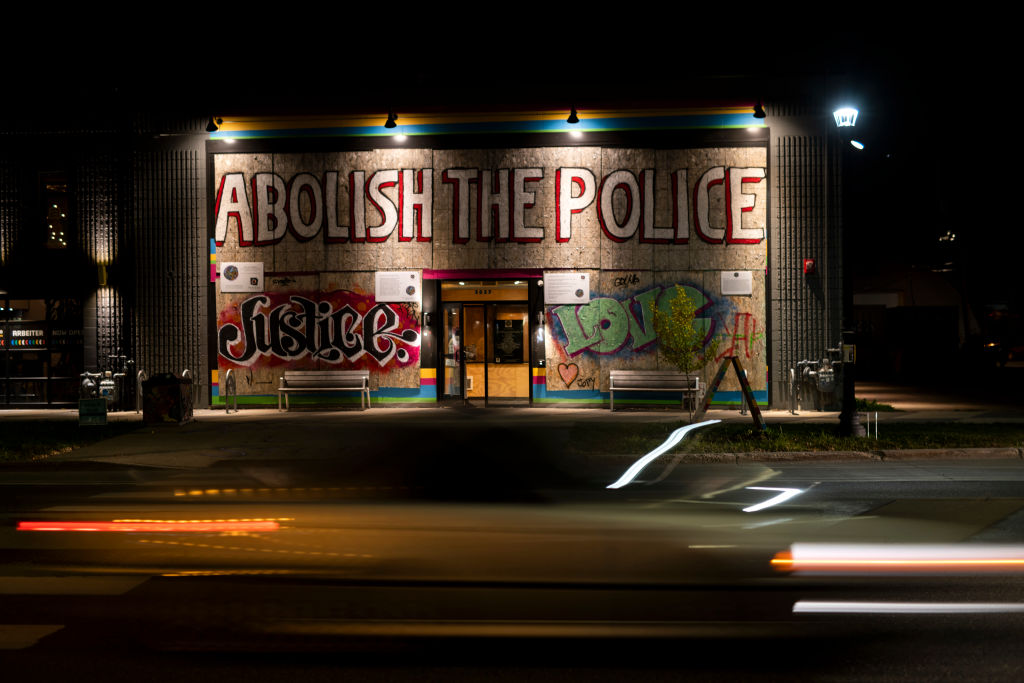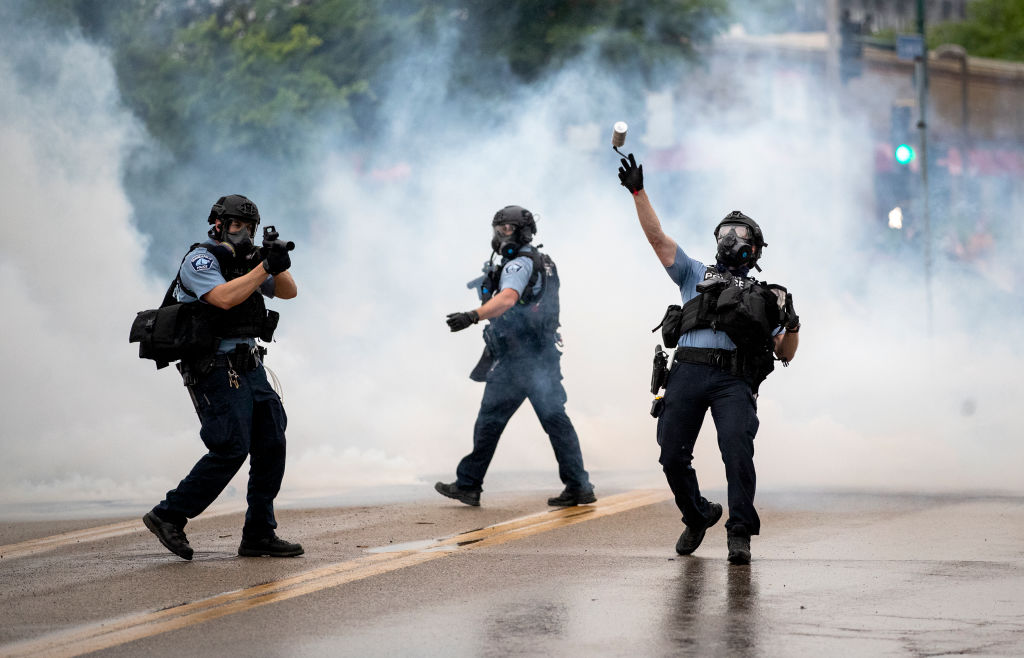Transforming Policing In Minneapolis And What It Means For Black Organizing
The Moments That Make The Movement: Black Visions Co-Founder On The Campaign To Transform Policing In Minneapolis And What It Means For Black Organizing
On November 2nd, Minneapolis took one step closer to actualizing a vision for what reimagining public safety could mean when 43% of the electorate voted YES on City Question 2, a critical ballot initiative that would have replaced the Minneapolis Police Department with a Department of Public Safety. After years of protesting, canvassing and caring for each other through incredibly tough times, tens of thousands of Minneapolis voters were fed up and on the verge of changing the infrastructure of policing as we know it in our city.
Police unions and corporate Democrats would have you believe that taking money from failed policing systems and funneling it into our schools, childcare, housing, roads and infrastructure is dangerous; some say even impossible. Locally, they used a very small group of conservative Black people to parrot talking points that suggest Black people would prefer the status quo — being surveilled, brutalized and murdered — over a new approach that would give us the resources needed to feel safe in the streets we call home. This serves to distract us from the fact that the movement to expand public safety and reallocate resources to our communities is one of the most important campaigns for Black organizing in decades, and that it is indeed possible to achieve.
This movement, which is built on the work of abolitionist organizing over the last few decades, is important because changing the way we police changes the way we respond to those in need. With more resources for care and crisis response, we can transform our relationship with each other and how we get our needs met.

Corenia Smith, Campaign Manager with Yes 4 Minneapolis, carried boxes of signed petitions toward the Minneapolis City Hall Rotunda. Smith, and others, delivered the petitions to the city clerk Friday afternoon, April 30, 2021. | Source: Star Tribune via Getty Images / Getty
Despite over 62,000 people (more than those who voted for the current mayor) casting a vote in favor of a new vision for public safety, Question 2 did not pass. While we are disappointed by the outcome and are evaluating our strategies to see what can be done to get a win in the future, it’s important to be clear that Question 2 was not the beginning and certainly not the end of our movement.
Our opposition knows that we are in a unique moment that is undergirded by years of organizing and growing distrust in police around the country. George Floyd’s murder infuriated people during a time when other aspects of social inequity were especially glaring due to the unequal care provided to Black, Indigenous and communities of color and the overall mismanagement of COVID-19. This layered on the pain, anger and determination to see justice through that had already been growing for years in cities across the United States, and particularly in Minneapolis.
In fact, it was the murder of Jamar Clark and the subsequent cover-up by MPD and city officials that began to pave a path for Black Visions. After an 18-day occupation of the 4th precinct police station, consistent harassment by MPD and continued inaction from the political establishment, it was clear that only organized power could break the chokehold that the police federation has on the city. Through the grief and trauma of ongoing police violence, our story begins with young, Black, queer and trans and immigrant folks coming together to build a political home that is visionary, strategic, and sustainable; to dream of a future where all Black people have autonomy and safety is community-led. Black Visions was established in 2017 and immediately began building with Black folks across the city to organize powerful, connected communities and dismantle systems of violence.

The Minneapolis Third Police Precinct is set on fire on Thursday, May 28, 2020, during the third night of protests following the death of George Floyd while in Minneapolis police custody. | Source: Star Tribune via Getty Images / Getty
Between protesting the murder of Jamar Clark, Philando Castille, and countless others, our people were tired of simply demanding justice in the form of firing or convicting one cop. When Daniella Fraizer’s video went viral and Minneapolis poured into the streets, it was Black Visions’ leadership and community partners like Reclaim the Block that lifted up the demand to defund police and move us beyond the rhetoric of the status quo. In the months that followed we struggled together: through the aftermath of an uprising, attempts by white nationalists to occupy our city, public call-outs, growing pains of a massive social movement, and the lies and misinformation of the opposition. We found ourselves at a moment where the very structure of policing was on the ballot. We were poised to make history, stronger, more clear-eyed, and more united.
Black Visions helped to found the Yes 4 Minneapolis campaign hoping to transform safety in our city and set the precedent for localities all across the country to defund police departments and build community safety structures that prioritize equity, life, care, and people above all else. This is something that all of our communities deserve, and something we will continue to fight for. This is also why the Movement for Black Lives, which Black Visions is a member organization of, mobilized over 20 organizations in their ecosystem to support our work locally. It is possible for national networks to flank local organizations without usurping or erasing local leadership but indeed supporting in building more cohesive local power by both fortifying and following leaders on the ground. This is a model for how this work can be done authentically in the future to win more power on the frontlines for our communities.

Traffic passes by Moon Palace bookstore adorned with a large banner reading “Abolish The Police” on Election Day on November 2, 2021, in Minneapolis, Minnesota. | Source: Stephen Maturen / Getty
Let me be clear, abolition of the violent systems that target and facilitate the demise of our people and communities is and has always been the goal. The YesOn2 campaign didn’t get us there but it is a critical step. It was a chance to take back power from the police who seek to criminalize and control our lives and put it back in the hands of the people. Upending police and policing at the ballot box and in our communities is indeed possible but it requires going deep with our people to embody what a world beyond policing could feel like. It’s possible when community organizations like Black Visions do the necessary work of showing — not just telling — what we mean when we say “we keep each other safe”. When we show up for one another, get in an organized community and stay in the struggle with each other, that’s when we build the power needed to fight and win for Black people and all people. On Tuesday, November 2nd, the people of Minneapolis — my people — made history again and hopefully inspired the country to imagine a future we deserve, beyond policing.
Miski Noor is a writer, organizer, and co-founder of Black Visions based in Minneapolis, MN.
SEE ALSO:
After Voters Rejected Replacing Cops, What’s Next For Police Reform In Minneapolis?

















